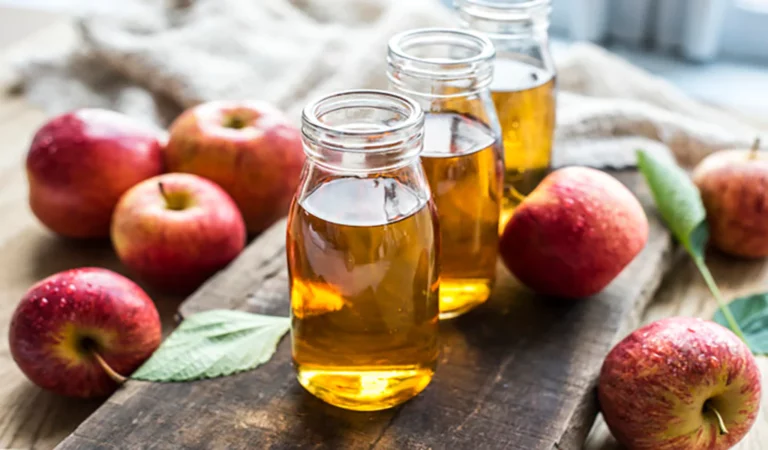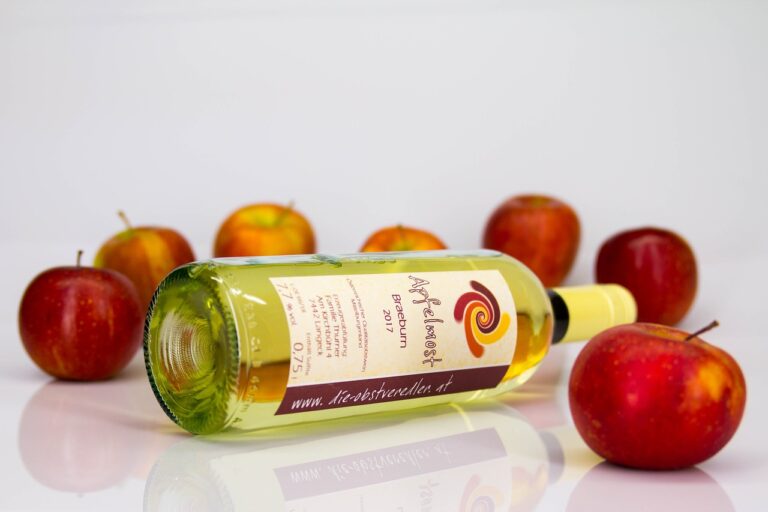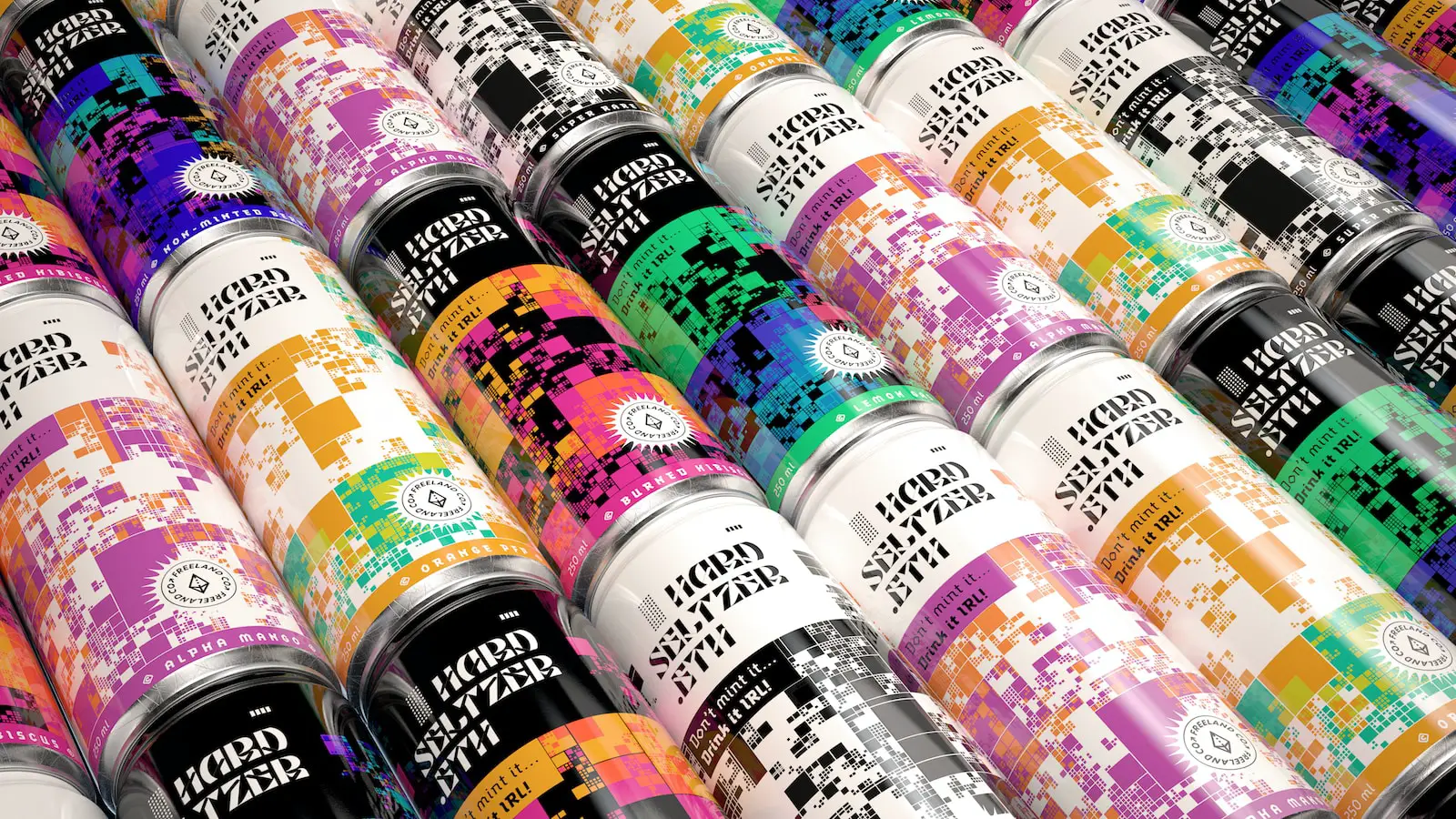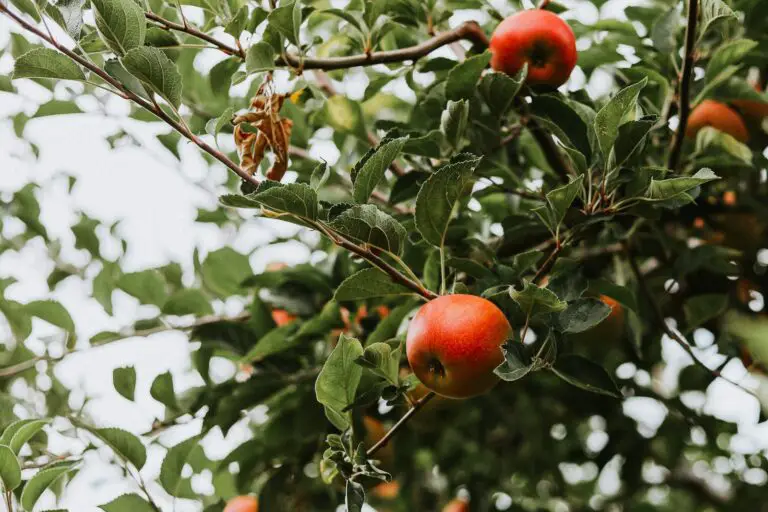Apple cider is a popular drink made by fermenting apples. It has been around for centuries and has been enjoyed by people all over the world.
However, not everyone can consume alcoholic beverages, which leads to the question, can apple cider be non-alcoholic?
In this article, we will explore the answer to this question and delve deeper into the world of apple cider.
Can Apple Cider be Non-Alcoholic?
Yes, apple cider can be non-alcoholic. In fact, non-alcoholic apple cider, also known as sweet cider, is a popular fall beverage that is enjoyed by many.
It is made by pressing fresh apples and then pasteurizing the juice to prevent it from fermenting into an alcoholic beverage.
There are two ways to make non-alcoholic apple cider by not fermenting the apples or by removing the alcohol from fermented apple cider.
When apple juice is pasteurized, it kills any yeast present in the juice and prevents fermentation from occurring. This is the simplest way to make non-alcoholic apple cider.
Fermentation is the process of converting sugar into alcohol using yeast. Fermented apple cider is typically alcoholic, with an alcohol content ranging from 3-8%.
However, it is possible to remove the alcohol from fermented apple cider to create a non-alcoholic version.
This is done through a process called vacuum distillation, which removes the alcohol while retaining the flavor and nutrients of the cider.
Benefits of Non-Alcoholic Apple Cider
There are several benefits to drinking non-alcoholic apple cider.
1- Great Source of Nutrients
Apples are packed with nutrients such as vitamin C, potassium, and fiber. When these nutrients are present in apple cider, they provide a wide range of health benefits.
Vitamin C, for example, is an antioxidant that helps boost the immune system and protect against illnesses.
Potassium is an essential mineral that helps regulate blood pressure and heart function. Fiber is important for maintaining digestive health and can also help lower cholesterol levels.
Non-alcoholic apple cider is also a great source of antioxidants.
Antioxidants help protect against oxidative stress, which can cause damage to cells and contribute to the development of chronic diseases.
Antioxidants in non-alcoholic apple cider include polyphenols, which have been shown to have anti-inflammatory and anti-cancer properties.
3- Suitable for Individuals Who Cannot Consume Alcohol
One of the biggest benefits of non-alcoholic apple cider is that it is suitable for individuals who cannot consume alcohol.
This includes children, pregnant women, and individuals who are recovering from alcoholism.
Non-alcoholic apple cider is a great alternative to alcoholic cider, providing a similar taste and experience without the negative effects of alcohol.
However, non-alcoholic apple cider is also a great option for individuals who are designated drivers or who simply choose not to consume alcohol.
It is a refreshing and flavorful beverage that can be enjoyed by all, regardless of their alcohol preferences.
4- Versatile Ingredient in Recipes
Non-alcoholic apple cider is a versatile ingredient that can be used in a variety of recipes.
Also, it can be used as a substitute for alcohol in recipes that call for it, such as apple cider vinegar or apple cider reduction.
It can also be used in baking recipes, such as apple cider donuts or apple cider cake.
In addition to its versatility in recipes, non-alcoholic apple cider can also be used as a flavorful and healthy beverage mixer.
It can be combined with other juices or spices to create delicious and unique beverages. For example, it can be combined with cranberry juice and a dash of cinnamon to create a festive and flavorful holiday drink.
5- May Help Lower Blood Sugar Levels
Non-alcoholic apple cider may also help lower blood sugar levels. Apples are rich in polyphenols, which are plant compounds that have been shown to have anti-inflammatory and antioxidant properties.
These polyphenols may help improve insulin sensitivity and reduce inflammation, which can lower blood sugar levels.
Consuming apple cider vinegar, which is made from fermented apple cider, before a high-carb meal helped improve insulin sensitivity and lower blood sugar levels in individuals with type 2 diabetes.
While more research is needed, this suggests that non-alcoholic apple cider may have similar benefits for blood sugar control.
Alcoholic vs. Non-Alcoholic Apple Cider: Which is Better?
Both alcoholic and non-alcoholic apple cider have their benefits. Alcoholic apple cider is enjoyed by many people and is often associated with fall festivities such as Halloween and Thanksgiving.
It can also have a higher alcohol content, making it a popular choice for those looking to relax or unwind.
On the other hand, non-alcoholic apple cider is a great option for individuals who cannot consume alcohol.
It is also a healthier choice, as it does not contain the negative effects of alcohol. Additionally, it can be used in a variety of recipes and is a great source of nutrients.
It ultimately comes down to personal preference. If you enjoy the taste of alcoholic apple cider and can consume it in moderation, then there is no reason why you should not indulge in it.
However, if you cannot consume alcohol or are looking for a healthier option, non-alcoholic apple cider is a great alternative.
Making Your Own Non-Alcoholic Apple Cider
If you are interested in making your own non-alcoholic apple cider, it is a relatively simple process. Here is a recipe to get you started:
Ingredients:
- 10-12 apples
- 2 cinnamon sticks
- 2-3 whole cloves
- 1-2 teaspoons of honey (optional)
- Water
Instructions:
- Wash and chop the apples into small pieces.
- Place the chopped apples in a large pot and add enough water to cover them.
- Add the cinnamon sticks and cloves to
- the pot.
- Bring the mixture to a boil, then reduce the heat and let it simmer for about an hour.
- Remove the pot from the heat and let it cool.
- Strain the mixture through a cheesecloth or fine mesh strainer to remove any solids.
- If desired, add honey for sweetness.
- Serve the non-alcoholic apple cider warm or cold.
Final Words
In conclusion, apple cider can be non-alcoholic. There are two ways to achieve this: by not fermenting the apples or by removing the alcohol from the fermented apple cider. Non-alcoholic apple cider has several benefits, including being suitable for individuals who cannot consume alcohol, providing nutrients, and being versatile in recipes.
Both alcoholic and non-alcoholic apple cider have their benefits, and it ultimately comes down to personal preference. If you are interested in making your own non-alcoholic apple cider, it is a simple process that can be done at home.










